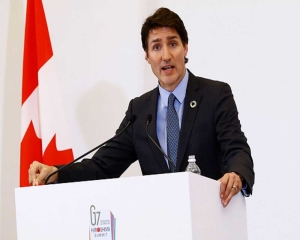The lengthy and cumbersome process of approval and bureaucratic red tape undermines the chances of the Government selling CPSU shares to willing investors
In the Budget for 2023-24, Finance Minister Nirmala Sitharaman had set a target of Rs 51,000 crore for proceeds of the sale of Union government shareholding in central public sector undertakings (CPSUs). As per available indications, the government may fall short of this target by Rs 30,000 crore.
An overwhelming share of the shortfall is due to delays in the disinvestment plans of IDBI Bank (the government plans to sell 30.48 per cent of its stake as well as 30.24 per cent shareholding of LIC aggregating to a total stake sale of 60.72 per cent) and state-owned NMDC Steel. Whereas, in the case of IDBI Bank, this is due to delays in the vetting process for potential buyers by the Reserve Bank of India (RBI), The sale of NMDC Steel is hamstrung due to elections in Chhattisgarh where the company's main plant is located.
The shortfall in proceeds during the current fiscal year is in sync with the trend seen since 2015-16 when the Modi - government started disinvestment with a particular focus on ‘strategic’ sale (a sophisticated nomenclature for a share sale that reduces its holding in the CPSU to below 50 per cent or privatization). Barring two years viz. 2017-18 and 2018-19 when the actual proceeds exceeded the target, in the remaining six years, the achievement was far short.
Even during 2017-18 and 2018-19, the government could achieve the target primarily because of the two big-ticket sales of its shares in one CPSU to another viz. (i) sale of its 51.11 per cent shareholding in Hindustan Petroleum Corporation Limited (HPCL) to the Oil and Natural Gas Corporation (ONGC) during 2017-18 that yielded Rs 37,000 crore; (ii) sale of its 52.63 per cent stake in Rural Electrification Corporation (REC) to the Power Finance Corporation (PFC) during 2018-19 yielding Rs 13,000 crore. These sales can’t be termed as strategic as the purchaser being another CPSU namely ONGC/PFC, the Government continues to have effective ownership over the divested entity viz. HPCL/REC.
It makes no sense to fix a target for proceeds from share sales. This is because unlike tax revenue, which can be projected with a degree of certainty, the same cannot be said about proceeds from disinvestment. In this case, a lot depends on the market scenario and, in particular, the perception of investors about the company in which share-sale is contemplated. In cases where the strategic sale is mooted, the Government faces a bigger challenge as apart from a favourable market, it needs bidders with deep pockets. The lengthy and cumbersome process of approval and bureaucratic red tape further undermines the chances of the Government kicking the ball rolling just around the time when the strategic investors are ready to put in their bets.
The Niti Aayog identifies companies for disinvestment which are then considered by the Core Group of Secretaries on Divestment (CGD), a long-drawn process by itself, which takes it to the Alternative Mechanism (AM) - a group of ministers, including finance, road transport & highways, administrative reforms, etc., - for approval. After AM’s approval, the Department of Investment and Public Asset Management (DIPAM) moved a proposal for in-principal approval of the Cabinet Committee on Economic Affairs (CCEA). Taking all these approvals is a time-consuming process and by the time these are in place, the market scenario could become adverse.
At a fundamental level, disinvestment of the government’s shareholding in a PSU is tantamount to the sale of assets. Therefore, receipts arising therefrom can only be treated as ‘capital receipts’ (CRs). While preparing the budget, it won’t be advisable to plan for receipts from this source in the same manner as it is done for revenue receipts (RRs) which are receipts generated from the day-to-day business activities e.g. dividends on shares held by the government.
The government should only provide for proceeds from share sales in CPSU on an ‘actual’ basis after it has happened instead of making provision at the time of presenting the budget. Having delinked from the budgetary process, it should take up disinvestment in CPSUs as an independent exercise guided by the broad principle of where it shouldn’t be in.
In an approach outlined in the Budget for 2021-22, the government divided CPSUs into two broad categories i.e. strategic and non-strategic. The strategic group covers atomic energy, space and defense; transport and telecommunications; power, petroleum, coal and other minerals; and banking, insurance and financial services. The non-strategic category includes all other sectors such as industrial and consumer goods, hotel and tourist services, trading, and marketing.
While, the government wants to sell CPSUs in the strategic sector with the caveat that at least one (and a maximum of four) will be retained in the public sector, it will privatise ‘all’ undertakings in non-strategic sectors. All loss-making undertakings in the latter category will be closed. Based on this template, it is working on a detailed action plan which is fine. But the process is hamstrung because of a host of legacy issues.
For instance, despite the Department of Public Enterprises (DPE) and Niti Aayog recommending the privatisation of all nine CPSUs in the fertiliser sector (it falls in the non-strategic category) coming under the administrative control of the Ministry of Chemicals and Fertilisers, the latter has opposed it. The ministry feels that with control over fertilizer PSUs gone, the government won’t be able to ensure adequate availability of this politically sensitive agri-input in every nook and corner of the country.
The strategic sale of Bharat Petroleum Corporation Limited (BPCL) hasn’t happened nearly four years after it was initially mooted in 2019-20. A prime reason is the government’s intent to regulate the prices of petrol and diesel (despite the price of these fuels having been deregulated way back in 2010/2014) which it can do by asking the three oil marketing CPSUs including BPCL to do its bidding. Its ability to influence prices will be hampered if BPCL is privatised.
The government wants to remain in the driver’s seat even after strategic sales. This is amply reflected in a statement in Sitharaman’s budget speech for FY 2019-20. She had stated the intent was to change the existing policy from “directly” holding 51 per cent or above in a CPSU, to one whereby its total holding, “direct” plus “indirect”, is maintained at 51 per cent.
In yet another glaring instance, even though an order of the Ministry of Finance (MoF) issued last year prohibits participation of CPSUs in the strategic sale of other PSUs, a caveat “…unless otherwise specifically approved by the Central Government in public interest” enables the powers that be to bypass this prohibition if they so wish.
Above all, the majority ownership and control by the Government for several decades has ingrained in the bureaucrat a feeling of exercising command (albeit remote) over the management of the PSU. The latter readily acquiescing has added to the sense of bureaucratic power. Although things have improved under the Modi - dispensation (courtesy of its focus on a ‘policy-driven state’, and increase in ‘transparency’), the basic ingredients remain intact.
Modi needs to play some hardballs to kill the existing mindset of the bureaucracy. The process of share sale should be de-bureaucratised by setting up a holding company (HC) where all government shares in CPSUs are placed. To be manned by eminent professionals, the HC should be fully empowered to make all decisions.
(The writer is a policy analyst, views are personal)
























